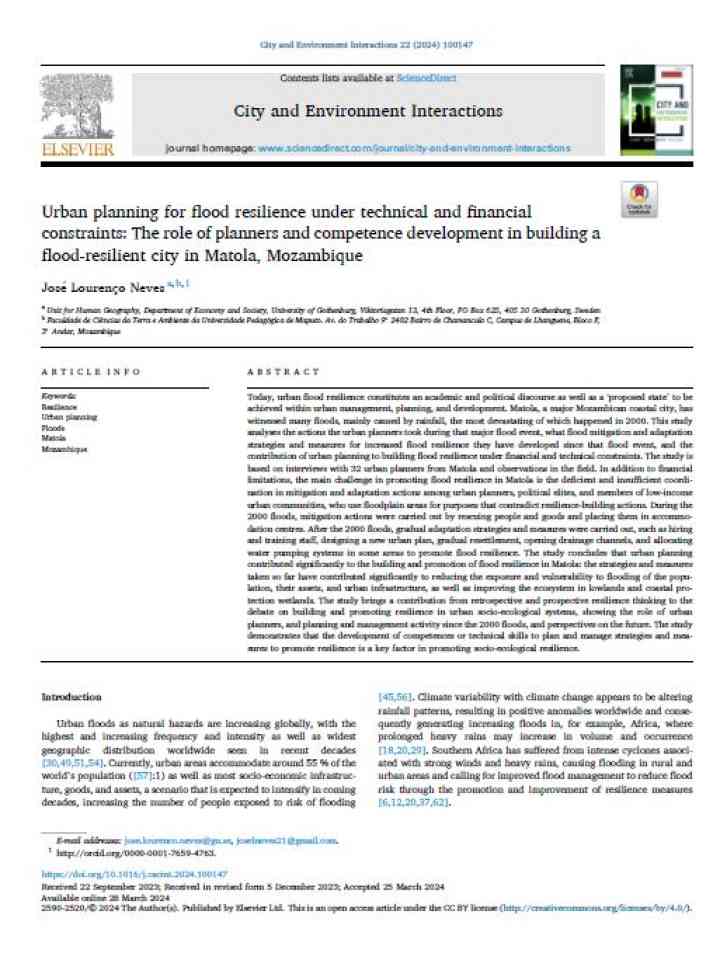Urban planning for flood resilience under technical and financial constraints: The role of planners and competence development in building a flood-resilient city in Matola, Mozambique
This study analyses the actions the urban planners took during the 2000 flood event in the city of Matola, Mozambique, what flood mitigation and adaptation strategies and measures for increased flood resilience they have developed since that flood event, and the contribution of urban planning to building flood resilience under financial and technical constraints. Today, urban flood resilience constitutes an academic and political discourse as well as a ‘proposed state’ to be achieved within urban management, planning, and development.
After the 2000 floods, gradual adaptation strategies and measures were carried out, such as hiring and training staff, designing a new urban plan, gradual resettlement, opening drainage channels, and allocating water pumping systems in some areas to promote flood resilience. The study concludes that urban planning contributed significantly to the building and promotion of flood resilience in Matola: the strategies and measures taken so far have contributed significantly to reducing the exposure and vulnerability to flooding of the population, their assets, and urban infrastructure, as well as improving the ecosystem in lowlands and coastal protection wetlands. The study brings a contribution from retrospective and prospective resilience thinking to the debate on building and promoting resilience in urban socio-ecological systems, showing the role of urban planners, and planning and management activity since the 2000 floods, and perspectives on the future. The study demonstrates that the development of competences or technical skills to plan and manage strategies and measures to promote resilience is a key factor in promoting socio-ecological resilience.
Explore further
